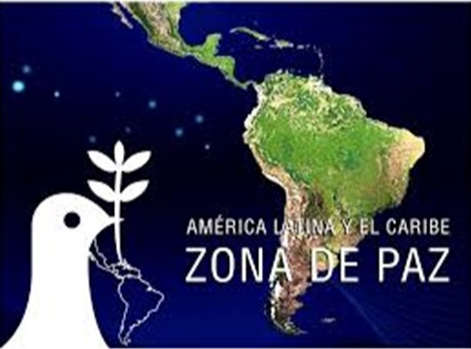
Photo by cubaminrex
By: Roberto Morejón
In a world full of tensions, even wars, peoples yearn to maintain peace and to achieve it when it is broken, hence the importance of Latin America and the Caribbean to ensure its continuity as a zone of harmony.
In 2014, CELAC, the Community of Latin American and Caribbean States, proclaimed the region a zone of peace and praised the Treaty of Tlatelolco, which defined it as free of nuclear weapons and weapons of mass destruction.
This was an important step taken in Havana during the Second Summit of the Bloc by governments that, despite their different positions and ideologies, advocated the resolution of differences through dialogue.
In addition, they stressed the importance of betting on the sovereignty and security of the subcontinent, even knowing that it is home to U.S. military bases and biological laboratories.
It is still useful to recall the notoriety of this proclamation when it is still valid to banish forever from the region the use and threat of the use of force.
A review of the postulates inherent in the declaration of Latin America and the Caribbean as a zone of peace is timely in the face of contingencies and dangers.
Recently, two former presidents of Colombia requested a military intervention in Venezuela, arguing that the results of the recent presidential elections in that country were being challenged.
The request, irresponsible and reprehensible, fortunately did not receive the response expected by the conspirators, although the Republican Donald Trump, who signed decrees as inflammatory as the massive deportations of illegal migrants, took office in Washington.
A dispute broke out between the United States and Colombia over the conditions in which deported migrants are returned, many of them in chains.
The history of the new tenants of the White House, with a Secretary of State whose weapon of choice is the overthrow of the governments of Cuba, Nicaragua and Venezuela, disturbs the calm of the region.
Eleven years after the proclamation of Latin America and the Caribbean as a zone of peace, its essentials, including the need to promote good neighborly relations, including those of other countries with the region south of the Rio Grande, remain vital.

